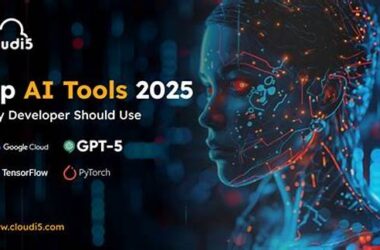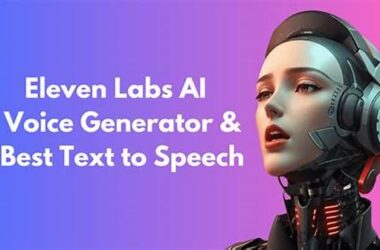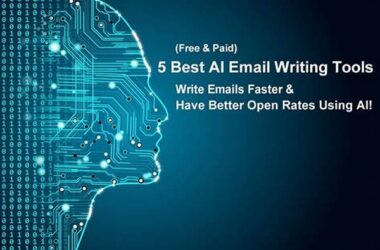Tools AI: Revolutionizing the Modern World
Read More : Top Ai Office Tools Revolutionizing Work In 2025
In today’s fast-paced digital age, AI tools have become indispensable assets revolutionizing how businesses operate, compete, and grow. These sophisticated tools are not only reshaping industries but also redefining job roles, consumer experience, and interaction paradigms. Imagine waking up to a world where mundane tasks are automated, data insights are just a click away, and personalized recommendations enhance every decision—this is the reality enabled by tools AI. As the invisible allies in our daily online and offline interactions, they enable user-centered innovations that drive efficiency, productivity, and engagement across sectors.
Moreover, the power of tools AI lies in their ability to mimic human intelligence. From performing complex data analyses to drafting error-free articles, AI tools are equipped to manage diverse tasks that traditionally demanded human effort. Their application spans across various sectors—be it healthcare, where they assist in accurate diagnosis; finance, where they predict stock trends; or education, where they personalize learning experiences. Their sheer versatility and potential make them fascinating subjects of study and development. As we’re at the cusp of a technological renaissance, the importance of embracing and understanding tools AI cannot be understated.
The rise of AI tools is not without its challenges. Concerns over privacy, job displacement, and ethical boundaries prevail. However, the benefits offer significant justification for their adoption. With a strategic approach, these challenges can be transformed into opportunities for growth and innovation. By promoting transparent AI deployment and governance standards, businesses can alleviate concerns and highlight the potential for AI to complement rather than replace human effort. Undoubtedly, tools AI are not just changing business strategies but also the very fabric of society.
As AI tools become increasingly ingrained in our lives, they invite us to reimagine possibilities. They fuel creativity, offer smarter solutions, and foster a culture of continuous improvement. The journey with tools AI is indeed thrilling, and its landscape is vast and varied. With curiosity and caution, embracing these technologies could be the key to unlocking unprecedented growth and development.
The Versatility of Tools AI
The sheer range of applications for tools AI is what makes them truly captivating. Their capabilities allow for enhanced creativity in the arts while offering high-efficiency solutions in manufacturing. By integrating machine learning algorithms, AI tools can predict consumer behaviors, automate redundant tasks, and enhance decision-making efficiency. As we delve deeper into the realm of AI, one thing becomes abundantly clear: embracing these tools isn’t an option anymore; it’s a necessity.
—Discussion: The Critical Role of AI Tools in Shaping Our Future
AI tools are at the forefront of technological advancement, altering the landscape of various industries with incredible speed. Their influence extends beyond mere automation; they are fundamentally changing the dynamics of workplaces, driving innovations that once seemed like futuristic pipe dreams. From self-driving cars to predictive analytics, AI tools are anchoring the next phase of industrial evolution, promising more than just efficiency—they signal a transformative shift in our day-to-day operations.
AI tools enhance productivity by automating routine tasks, thereby freeing up valuable human resources to focus on more strategic initiatives. This shift creates a more engaging workplace, where creativity and problem-solving are prized over mere task execution. The adoption of AI tools in customer service, for instance, enables companies to deliver more personalized service with chatbots, ensuring customers receive timely and accurate responses. Such tools AI can process vast amounts of data in real-time, offering insights that are actionable and profound.
In healthcare, AI tools have taken on roles previously confined to human experts. By analyzing complex medical data, they assist in diagnosing diseases, predicting patient outcomes, and personalizing treatment plans. The tools AI utilized in genomic research, for instance, have accelerated breakthroughs that pave the way for personalized medicine. Similarly, in finance, AI-driven applications are used for fraud detection, credit scoring, and risk management—facilitating safer and more efficient financial environments.
While the prospects are promising, the rise of AI tools brings ethical and privacy considerations to the forefront of discussions. There is a critical need for developers and policymakers to ensure these tools are used responsibly, maintaining user trust without compromising on innovation. The balance between leveraging tools AI for societal benefit and safeguarding individual rights and data is delicate yet vital.
Understanding the Impact of AI Tools
The discussions surrounding AI tools tend to oscillate between exaggerated fears and optimistic predictions. It’s important to approach this topic with a balanced perspective that acknowledges both the potential and the challenges. Effective integration and usage of AI tools require ongoing dialogue, research, and adaptation to the continually evolving landscape of technology. Keeping pace with these developments is crucial for businesses looking to retain a competitive edge while fostering a culture of ethical innovation.
Future Trends in AI Tool Development
The future of AI tools looks incredibly promising, with trends pointing towards more intuitive, user-friendly designs. As machine learning algorithms become more refined, these tools will offer even greater precision and personalization. Enhanced natural language processing capabilities will allow for improved human-AI interactions, making communication seamless and more natural. The challenge and opportunity will lie in aligning these advancements with ethical standards to ensure technology serves humanity in the best possible way.
—10 Topics Relating to Tools AI
Purpose of Understanding Tools AI
The world is rapidly shifting towards a digital landscape where AI tools are becoming pivotal. The purpose of delving into the realm of AI tools is to equip ourselves with the knowledge and skills to navigate this inevitable transformation. As they become integral to our daily lives, understanding tools AI’s intricacies will empower individuals and businesses to harness their potential effectively. Whether it’s optimizing operations, enhancing customer experiences, or driving innovation, tools AI offer a multitude of applications that promise significant benefits.
Diving deeper into the purpose of AI tools, it’s crucial to recognize their ability to democratize access to information and technology. Small businesses and startups, which traditionally faced numerous barriers to entry, can now leverage these tools for a level playing field with larger corporations. This democratization fuels entrepreneurship, encourages innovation, and paves the way for novel solutions to age-old problems.
Additionally, AI tools significantly contribute to knowledge expansion and educational advancements. They offer unparalleled opportunities for personalized learning, adaptive teaching methodologies, and efficient administrative tasks. By reducing the workload of educators and enabling more personalized interactions with students, AI tools foster a more dynamic and responsive educational environment.
In summation, the primary purpose behind tools AI is not only about technological advancement but also about enhancing human capability and potential. As these tools continue to evolve, they promise to open new doors for growth and development, urging societies to engage with them critically and creatively.
Integration and Adaptation of AI Tools
The integration of AI tools in various sectors requires a strategic approach. While the potential benefits are immense, understanding the challenges and preparing for a seamless transition is equally vital. Embracing AI technology involves not just the adoption of new tools but fostering an organizational culture ready for change. It is about cultivating an environment that values innovation, learning, and adaptability, ensuring that the human aspect remains at the core of technological evolution.
The Importance of Continuous Learning in AI
As AI tools continue to evolve, so too should our understanding and education regarding them. Continuous learning and adaptation are essential for maximizing the benefits these tools offer. It is crucial for businesses and individuals alike to remain informed and proactive in pursuit of knowledge, developing the skills needed to thrive in an AI-integrated world. Leadership and education play pivotal roles in this journey, guiding the workforce and society as a whole toward a future enriched by AI.
—5 Brief Explanations about Tools AI
1. AI Tools and Industry Transformation
2. Enhancing Personalization with AI Tools
3. AI Tools in Automating Routine Tasks
4. AI Tools and Data Security Challenges
5. The Future of Work with AI Tools
Description of Tools AI
The phenomenon of AI tools is monumental, marking an era where technology and human capability blend harmoniously. Encompassing everything from basic automation software to sophisticated data analysis programs, these tools promise unparalleled efficiency and innovation. Grounded in complex algorithms, they stand as a testament to the strides we’ve made in computing and artificial intelligence. Their role in today’s society goes far beyond convenience—they are instrumental in altering production processes, consumer interactions, and information dissemination.
With their increasing presence, AI tools are democratizing opportunities for small and medium-sized enterprises by lowering operational costs through automation. This levels the playing field, allowing younger companies to compete with industry giants. Furthermore, they are catalysts for data-driven decision-making, offering insights that were previously unattainable. The use of predictive analytics and machine learning models becomes accessible, enabling smarter strategies and risk minimization.
A humorous take on the rapid AI integration might point out how these tools are increasingly becoming our ‘colleagues’ at work. They don’t ask for sick days or coffee breaks, yet their ‘workaholic’ nature ensures optimal productivity. Jokes aside, the potential of AI tools is vast and their influence undeniable. Their continued development will specify how we live, work, and understand the world around us—making them a field of interest for anyone invested in the future of technology.
AI Tools and Human-AI Interaction
As AI tools excel at handling complex data sets and learning from them, they optimize interactions between humans and technology. Inspiring a new era of service provision that is more agile, AI tools are shaping future interactions, encouraging a collaborative environment where humans and intelligent systems work in harmony. Realizing this potential requires a dedicated focus on ethical AI development and governance, ensuring these tools augment human potential rather than constrain it.
Ethical Considerations and AI Tools
The integration of AI tools in various aspects of society demands a robust ethical framework. It is critical to address concerns around privacy, security, and the decision-making processes used by AI systems. Establishing clear guidelines and accountability measures ensures that these technologies enrich lives responsibly, creating a future where AI tools are trusted partners in progress rather than mere instruments of utility.
—



